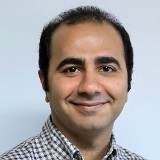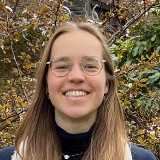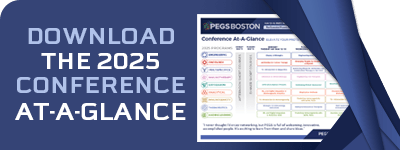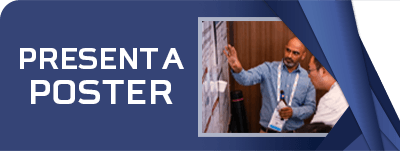短期課程
短期課程以教學和互動的形式提供關於特定主題的深入資訊。參加者和講師之間的一對一互動可以更輕鬆地涵蓋主要演示文稿中可能未涵蓋的技術方面。
短期課程僅限線下參加
Sunday, May 11, 2025 2:00 - 5:00 pm
SC1: In silico and Machine Learning Tools for Antibody Design and Developability Predictions
Topics to be covered include:
- Overview of sequence, structure-guided, ML (machine learning) tools for developability and designs
- Overview and demo of various ML tools from Oxford Protein Informatics Group (OPIG)
- Antibody specific language models (Ablang - Olsen et al 2022, Ablang2 - Olsen et al 2024)
- Antibody (and nanobody) structure prediction (ABodyBuilder2) Abanades et al 2023)
- Therapeutic antibody profiling and developability evaluation (TAP - Raybould et al 2019, TAP2 - Raybould et al 2024)
- Antibody sequence optimization with inverse folding (AntiFold - Hummer et al 2023)
- In silico developability assessment - case studies
INSTRUCTOR BIOGRAPHIES:
 Mehdi Boroumand, PhD, Associate Principal Data Scientist, Machine Learning, AstraZeneca
Mehdi Boroumand, PhD, Associate Principal Data Scientist, Machine Learning, AstraZeneca
 Henriette Capel, PhD Student, University of Oxford
Henriette Capel, PhD Student, University of Oxford
 Vinodh B. Kurella, PhD, Biotherapeutic Computational Modeler, Takeda Pharmaceuticals, Inc.
Vinodh B. Kurella, PhD, Biotherapeutic Computational Modeler, Takeda Pharmaceuticals, Inc.
 Robert Vernon, PhD, Associate Director, Amgen
Robert Vernon, PhD, Associate Director, Amgen
SC2: Safety & Efficacy of Bispecifics and ADCs
The short course will discuss:
- Bispecific and ADC landscape assessment and unmet medical needs
- Efficacy and safety challenges originating from poorly constructed ADCs
- Five rights of the targets, effector arms, and constructs for attaining the best therapeutic index for bispecifics and ADCs
- Minimizing toxicities of bispecifics and ADCs
- Translational aspects of bispecific and ADC development
INSTRUCTOR BIOGRAPHIES:
 Rakesh Dixit, PhD, DABT, President & Founder, Bionavigen Oncology, LLC and Regio Biosciences
Rakesh Dixit, PhD, DABT, President & Founder, Bionavigen Oncology, LLC and Regio Biosciences
SC3: Challenges and Opportunities in Solid Tumor and Autoimmune Disease Therapeutic Innovations
- Identify and develop next-generation immunotherapies for solid tumors and autoimmune diseases
- Analyze the solid tumor microenvironment, discussing successful therapies such as T cell engagers, blocking bispecific antibodies, ADCs, CAR-Ts, Radio ligand therapy and Targeted Protein degraders
- Examines autoimmune disease biology and therapeutic development, integrating approaches like immune target blockade and autoantigen tolerizing.
- Highlights the application of machine learning and generative AI in discovering novel therapeutic targets and expediting therapeutic development.
- Addresses the challenges and provides case examples of cutting-edge therapeutic approaches in both cancer and autoimmune diseases
INSTRUCTOR BIOGRAPHIES:
 Tony R. Arulanandam, DVM, PhD, CEO and Founder, Synaptimmune Therapeutics
Tony R. Arulanandam, DVM, PhD, CEO and Founder, Synaptimmune Therapeutics
Tuesday, May 13, 2025 6:30 - 9:00 pm
SC4: Best Practices for Targeting GCPRs, Ion Channels, and Transporters with Monoclonal Antibodies
INSTRUCTOR BIOGRAPHIES:
 Ross Chambers, PhD, Vice President, Antibody Discovery, Integral Molecular, Inc.
Ross Chambers, PhD, Vice President, Antibody Discovery, Integral Molecular, Inc.
SC5: Targeting the Target: Aligning Target and Biologic Format Biology to Achieve Desired Outcomes
Topics to be covered
- Introduction to the “components of success paradigm”
- Underlying concepts and examples of one target, multiple functions/outcomes
- How emerging technologies are and could impact
- o Understanding target biology, lead selection and discovery/development paradigm
- o Target space for bispecifics, ADCs and other therapeutic formats/concepts
- Case studies: (i) evaluating functional impact of different mAbs to the same target (target/mAb biology): (ii) designing biologic molecules to develop functional assays to assess novel/emerging target biology and potentially develop novel therapeutics
INSTRUCTOR BIOGRAPHIES:
 Tariq Ghayur, PhD, Tariq Ghayur Consulting, LLC; Entrepreneur in Residence, FairJourney Biologics
Tariq Ghayur, PhD, Tariq Ghayur Consulting, LLC; Entrepreneur in Residence, FairJourney Biologics
SC6: Developability of Bispecific Antibodies
Topics to be covered
- Introduction to bispecifics and bispecific formats
- Therapeutic applications of bispecific antibodies
- Developability of bispecifics
- Case study: discovery and development of an FDA-approved bispecific antibody
INSTRUCTOR BIOGRAPHIES:
 Nimish Gera, PhD, Vice President, Biologics, Mythic Therapeutics
Nimish Gera, PhD, Vice President, Biologics, Mythic Therapeutics
SC7: Nuts and Bolts of Building a Radiopharmaceutical Therapy Agent
INSTRUCTOR BIOGRAPHIES:
 Diane S. Abou, PhD, Principal Radiochemist, Assistant Professor, Mallinckrodt Institute of Radiology, Washington University School of Medicine in St. Louis
Diane S. Abou, PhD, Principal Radiochemist, Assistant Professor, Mallinckrodt Institute of Radiology, Washington University School of Medicine in St. Louis
* 活動內容有可能不事先告知作更動及調整。
2025年 方案
顯示:

工程組
- Display of Biologics
生物製劑展示 - Engineering Antibodies
抗體工程 - Machine Learning for Protein Engineering
用於蛋白質工程的機器學習

腫瘤組
- Antibodies for Cancer Therapy
用於癌症治療的抗體 - Emerging Targets for Oncology & Beyond
腫瘤學以外的新興目標 - Driving Clinical Success in Antibody-Drug Conjugates
推動抗體藥物偶聯物 (ADC) 在臨床上的成功

多特異性組
- TS: Intro to Multispecific Antibodies
培訓研討會:多特異性抗體簡介 - Advancing Multispecific Antibodies
多特異性抗體研究進展 - Engineering Bispecific and Multifunctional Antibodies
雙特異性抗體與多功能抗體工程

免疫療法組
- Advances in Immunotherapy
免疫療法的進步 - Engineering Cell Therapies
細胞治療工程 - Next-Generation Immunotherapies
下一代免疫療法

表達組
- Difficult-to-Express Proteins
難以表達的蛋白質 - Optimizing Protein Expression
優化蛋白質表達 - Maximizing Protein Production Workflows
最大化蛋白質生產工作流程

分析法組
- ML and Digital Integration in Biotherapeutic Analytics
生物製藥分析中的機器學習和數位整合 - Biophysical Methods
生物物理性手法 - Characterization for Novel Biotherapeutics
新型生物治療藥物的表徵

免疫原性組
- TS: Intro to Immunogenicity
培訓研討會:免疫原性簡介 - Predicting Immunogenicity with AI/ML Tools
使用 AI/ML 工具預測免疫原性 - TS: Bioassay Development and Analysis
培訓研討會:生物測定開發與分析

新興治療學組
- Biologics for Immunology Indications
新興治療學組 - Radiopharmaceutical Therapies
放射性藥物治療 - Next-Generation Immunotherapies
下一代免疫療法

機器學習組
- ML and Digital Integration in Biotherapeutic Analytics
生物製藥分析中的機器學習和數位整合 - Predicting Immunogenicity with AI/ML Tools
使用 AI/ML 工具預測免疫原性 - Machine Learning for Protein Engineering
用於蛋白質工程的機器學習














